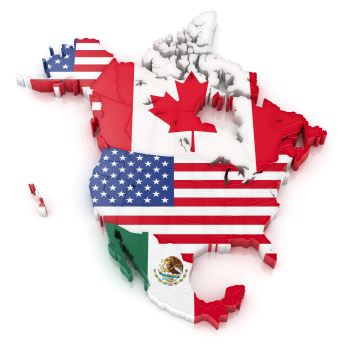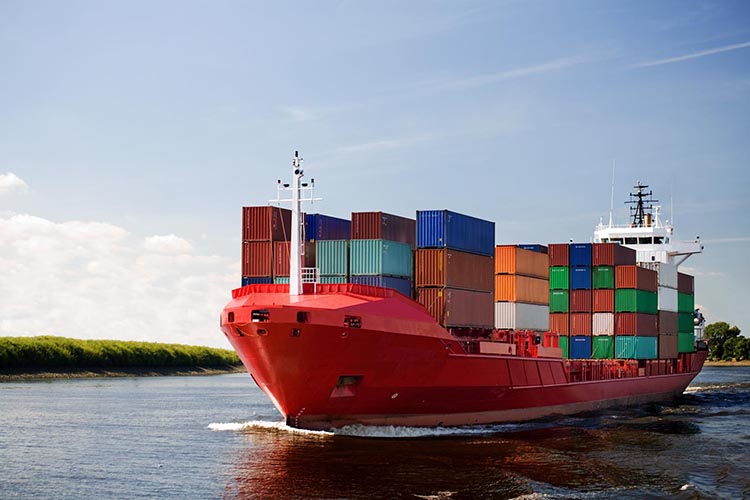
FTZ’ine May 2020
May 5, 2020
FTZ’ine July 2020
July 1, 2020Growing Grip of The Pandemic
The impact of the coronavirus has gotten deeper and is affecting trade in ways that could not have been predicted at the outset of the pandemic. Taiwan and Hong Kong have now become flash points in the trade dispute between the United States and China and tensions continue to escalate.
Rapidly growing unemployment is forcing companies to try and predict how consumer patterns will change and over what time frame. Businesses from restaurants to real estate are estimating changes to their demand patterns that are likely to be permanent. It’s a great time to be in the plexiglass business, but not an airport manager. Keep reading to stay in touch with all the impacts current events have on trade and the FTZ industry.
The FTZine staff hopes all will be well, and be vigilant.

Top Story: Foreign-Trade Zones Brace For Hong Kong Impact
Just last night Beijing again warned of new retaliation measures after President Donald Trump announced restrictions on Chinese students in the US.
Tech Tip
Did you experience a delay in acceptance of your cargo release filings in May? You’re not alone – it was a system-wide processing delay in ACE, CBP’s filing processing system. And the cause may surprise you.
In early May, CBP experienced a larger than anticipated surge in the number of Section 321 (Entry Type 86) filings. This is what brought cargo release to a slow grind systemwide.
CBP is already processing roughly 1.5 million Type 86 entries per day in their pilot of a new informal entry type to report shipments valued less than $800. This entry type is important because it paves the way for collecting necessary PGA and other previously unreported data for these shipments that had been entered using only manifest data before now. By making the process electronic they also broadened the entities able to file the so called de minimus entries, leading to a surge in volume
This entry type is not currently in use by FTZs, so you may be wondering why we are talking about it in the FTZ’ine. It goes to show how interrelated all processing by Customs has become in ACE and how any new functionality or data collection can impact everyone. Since this is only a pilot, it is likely that brokers and filers are only starting to process the volume that can be expected later when electronic filing becomes mandatory. This latest slow down came when several air carriers came on board at the same time.
As more filers come online, we can expect to see continued impact to all ACE data processing. Hopefully, the trade initiative to drive Section 321 access for FTZs will be successful to take advantage of this fast-growing segment of e-commerce.
To learn more about these efforts by the National Association of Foreign-Trade Zones, contact us at Info@iscm.co.


Coronavirus
Train Your Way
Training should be as flexible as the working arrangements we find ourselves in today. At ISCM, we believe you should have Your Training Your Way!
Training doesn’t have to be one-size-fits-all. Contact ISCM to learn more about getting Your Training Your Way today!


Major Economies In Recession, Adding To FTZ Headaches
US Land Borders Remain Closed to Non-Essential Traffic
The U.S., Canada and Mexico will contiue to keep their shared borders closed to non-essential traffic in June.
Chad Wolf, the acting Secretary of Homeland Security, announced last week that the U.S.-Canada and U.S.-Mexico land border closures have been extended until June 22.


FTZ Board Activity
- Amgen Manufacturing Limited submitted a notification of proposed production activity for pharmaceuticals within FTZ 7 in Juncos, Puerto Rico. MORE
- The Arizona Regional Economic Development Foundation submitted an application for the expansion of its service area under the alternative site framework within FTZ 139 in Sierra Vista, Arizona. MORE
- Golden Pass LNG Terminal LLC submitted a notification of proposed production activity for liquified natural gas processing within FTZ 116 in Port Arthur, Texas. MORE
- Janssen Pharmaceuticals Inc. submitted a notification of proposed production activity for pharmaceutical products within FTZ 26 in Athens, Georgia. MORE
- Golden Pass LNG Terminal LLC submitted an application for subzone status for its facility within FTZ 116 in Port Arthur, Texas. MORE
- Cheniere Energy, Inc. received approval for subzone status for its new facility as subzone 122X in Portland, Texas. MORE
- CoLinx, LLC submitted a notification of proposed production activity for tapered roller bearing unit and gearhead kitting within FTZ 148 in Crossville, Tennessee. MORE
- LiCAP Technologies, Inc. submitted a notification of proposed production activity for electrodes within FTZ 143 in Sacramento, California. MORE
- Puma Energy Caribe, LLC submitted an application for the expansion of subzone 7F of FTZ 7 in Bayamon and Guaynabo, Puerto Rico. MORE
- Greater Miami Foreign-Trade Zone, Inc. received approval to expand the alternative site framework service area of FTZ #32 to include all of Miami-Dade County in Miami, Florida. MORE
- LiCAP Technologies submitted an application for subzone status for its new facility in Sacramento, California. MORE
- Rohr, Inc. submitted a notification of proposed production activity for aircraft engine parts within FTZ 183 in San Marcos, Texas. MORE
- Rohr, Inc. submitted a notification of proposed production activity for aircraft engine parts within FTZ 82 in Foley and Loxley, Alabama. MORE
- Andersen Regional Manufacturing, Inc. received authorization of production activity for windows for residential and commercial buildings within FTZ 277 in Goodyear, Arizona. MORE
- PPC Broadband, Inc. received authorization of production activity for hardline coaxial cables within FTZ 90 in Dewitt, New York. MORE
- MTD Consumer Group Inc. received approval of production activity with rare quantity restrictions for textile grass-catcher bags within FTZ 158 in Verona, Mississippi. MORE
- Mitsubishi Electric Automotive America, Inc. received approval for subzone status for its new facility as subzone 47F in Maysville, Kentucky. MORE
- Rauch North America, Inc. submitted a notification of proposed production activity for non-alcoholic beverages within FTZ 277 in Waddell, Arizona. MORE
Growing Grip of The Pandemic –
The impact of the coronavirus has gotten deeper and is affecting trade in ways that could not have been predicted at the outset of the pandemic. Taiwan and Hong Kong have now become flash points in the trade dispute between the United States and China, and tensions continue to escalate.
Rapidly growing unemployment is forcing companies to try and predict how consumer patterns will change and over what time frame. Businesses from restaurants to real estate are estimating changes to their demand patterns that are likely to be permanent. It’s a great time to be in the plexiglass business, but not to be an airport manager. Keep reading to stay in touch with all the impacts current events have on trade and the FTZ industry.
The FTZine staff hopes all will be well, and be vigilant.

